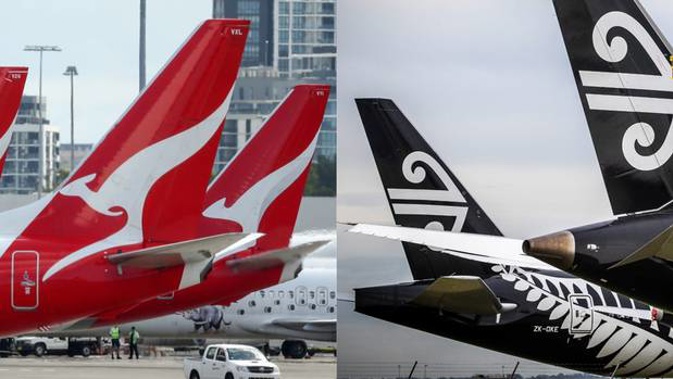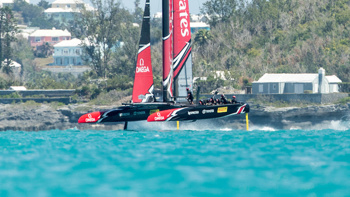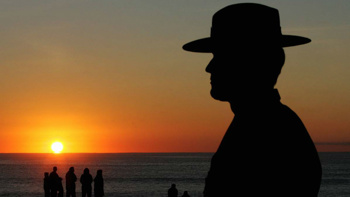
Scientists have proposed a new regime that could allow travel from Australia, without the need for visitors to spend two weeks in quarantine.
In a new study, Otago University epidemiologists professors Michael Baker and Nick Wilson, along with Martin Eichner of Germany's University of Tubingen, explored an alternative system to the current 14-day quarantine in place for people arriving from Australia.
They found that a mix of exit and entry screening, two polymerase chain reaction (PCR) genetic tests on the visitors' third and 12th days in the country, mask use and contact tracing could slash the risk of a Covid-19 outbreak in New Zealand from one every two years, to one every 30 years.
They found their proposed regime was similar to what the country currently had in place with its two-week quarantine system, which has been tightened after two UK travellers were granted an exemption to attend a funeral before being found to be infected with the virus.
While some Australian states were inching toward elimination status, the researchers said that may never be possible for the country as a whole.
Despite that, Prime Minister Jacinda Ardern and Australian PM Scott Morrison have talked of creating a quarantine-free transtasman bubble.
In their study, they combined data from both countries, taking in an assumption of low rates of Covid-19 in Australia and one flight across the Tasman to New Zealand each day.
When no control interventions were in place, an outbreak of Covid-19 was estimated to occur after an average time of 1.7 years.
However, the combined use of exit and entry screening – including a symptom questionnaire and thermal camera – along with good contact tracing and visitors wearing masks until the second of the two PCR tests were carried out, slashed the risk of outbreak down to one every 29.8 years.
They found that, if no PCR testing was carried, but masks were used by passengers up to the 15th day in New Zealand, the risk moved to one outbreak every 14.1 years.
However, the present 14 days' quarantine was still the most effective strategy at one outbreak every 34.1 years.
The numbers changed again when the researchers considered a more dramatic scenario – a 10-fold increase on current infections in Australia, along with 10 times the number of flights to New Zealand.
That brought the risk of outbreak in New Zealand to one every three years under their suggested regime – and one every 3.4 years under the current one.
"This analysis suggests that a multi-layered package of interventions applied to passengers travelling from Australia to New Zealand without quarantine appeared to markedly reduce the risk of Covid-19 outbreaks in New Zealand," they said.
"Current practice is quarantine for 14 days, which was the most effective single intervention.
"Nevertheless, the package of PCR testing… might be a reasonable alternative, with an expected outbreak occurring after an average of about 30 years."
Their study however came with some caveats. For instance, they couldn't be certain that visitors would keep their masks on, as they'd assumed in modelling.
The researchers suggested digital tools could be used to track incoming passengers to track them, ensure they wore masks – and potentially even alert health authorities to changes in temperature or heart rate.
They added that a widened bubble allowing quarantine-free travel might not just include Australia, but other nearby nations – such as Samoa, Tonga, Fiji and possibly even Taiwan – where Covid-19 had either been kept out completely, or was near or totally stamped out.
"These issues could benefit from further investigations, along with real-world studies on the estimated cost-effectiveness, feasibility, acceptability and adherence with the traveling public, airlines and border control services, of these various interventions," they said.
"The relevance of these costs to policy-makers might also be impacted by who is paying - one estimate is that 14 days of quarantine currently costs the New Zealand Government around $6200 per person."
"For example, all incoming passengers could be charged a Covid-19 levy and the whole system could have a user-pays component."
Take your Radio, Podcasts and Music with you









